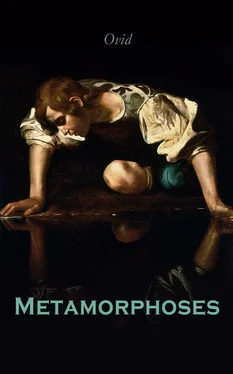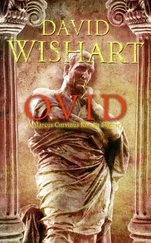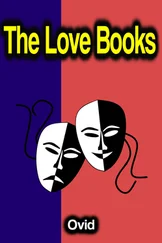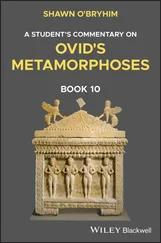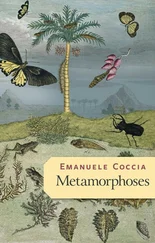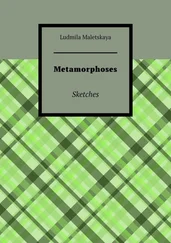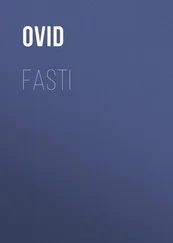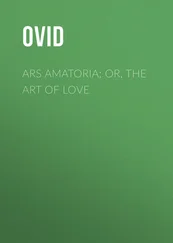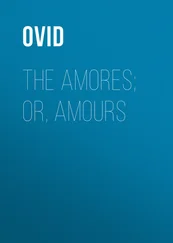75 Parian marble. ]—Ver. 419. Paros was an island in the Ægean sea, one of the Cyclades; it was famous for the valuable quality of its marble, which was especially used for the purpose of making statues of the Gods.
76 Regard for food. ]—Ver. 437. ‘Cereris.’ The name of the Goddess of corn is here used instead of bread itself.
77 Laid their hair. ]—Ver. 506. It was the custom among the ancients for females, when lamenting the dead, not only to cut off their hair, but to lay it on the body, when extended upon the funeral pile.
78 Cities of Achaia. ]—Ver. 511. Achaia was properly the name of a part of Peloponnesus, on the gulf of Corinth; but the name is very frequently applied to the whole of Greece.
79 Pentheus. ]—Ver. 513. He was the son of Echion and Agave, the daughter of Cadmus.
80 Warlike men. ]—Ver. 531. ‘Mavortia.’ Mavors was a name of Mars, frequently used by the poets. The Thebans were ‘proles Mavortia,’ as being sprung from the teeth of the dragon, who was said to be a son of Mars.
81 Tambourines. ]—Ver. 537. ‘Tympana.’ These instruments, among the ancients, were of various kinds. Some resembled the modern tambourine; while others presented a flat circular disk on the upper surface, and swelled out beneath, like the kettle-drum of the present day. They were covered with the hides of oxen, or of asses, and were beaten either with a stick or the hand. They were especially used in the rites of Bacchus, and of Cybele.
82 The thyrsus. ]—Ver. 542. The thyrsus was a long staff, carried by Bacchus, and by the Satyrs and Bacchanalians engaged in the worship of the God of the grape. It was sometimes terminated by the apple of the pine, or fir-cone, the fir-tree being esteemed sacred to Bacchus, from the turpentine flowing therefrom and its apples being used in making wine. It is, however, frequently represented as terminating in a knot of ivy, or vine leaves, with grapes or berries arranged in a conical form. Sometimes, also, a white fillet was tied to the pole just below the head. We learn from Diodorus Siculus, and Macrobius, that Bacchus converted the thyrsi carried by himself and his followers into weapons, by concealing an iron point in the head of leaves. A wound with its point was supposed to produce madness.
83 Engines of war. ]—Ver. 549. ‘Tormenta.’ These were the larger engines of destruction used in ancient warfare. They were so called from the verb ‘torqueo,’ ‘to twist,’ from their being formed by the twisting of hair, fibre, or strips of leather. The different sorts were called ‘balistæ’ and ‘catapultæ.’ The former were used to impel stones; the latter, darts and arrows. In sieges, the ‘Aries,’ or ‘battering ram,’ which received its name from having an iron head resembling that of a ram, was employed in destroying the lower part of the wall, while the ‘balista’ was overthrowing the battlements, and the ‘catapulta’ was employed to shoot any of the besieged who appeared between them. The ‘balistæ’ and ‘catapultæ’ were divided into the ‘greater’ and the ‘less.’ When New Carthage, the arsenal of the Carthaginians, was taken, according to Livy (b. xxvi. c. 47), there were found in it 120 large and 281 small catapultæ, and twenty-three large and fifty-two small balistæ. The various kinds of ‘tormenta’ are said to have been introduced about the time of Alexander the Great. If so, Ovid must here be committing an anachronism, in making Pentheus speak of ‘tormenta,’ who lived so many ages before that time. To commit anachronisms with impunity seems, however, to be the poet’s privilege, from Ovid downwards to our Shakspere, where he makes Falstaff talk familiarly of the West Indies. We find the dictionaries giving ‘tormentum’ as the Latin word for ‘cannon;’ so that in this case we may say not that ‘necessity is the mother of invention,’ but rather that she is ‘the parent of anachronism.’
84 Acrisius. ]—Ver. 559. He was a king of Argos, the son of Abas, and the father of Danaë. He refused, and probably with justice, to admit Bacchus or his rites within the gates of his city.
85 His grandfather. ]—Ver. 563. Athamas was the son of Æolus, and being the husband of Ino, was the son-in-law of Cadmus; who being the father of Agave, the mother of Pentheus, is the grandfather mentioned in the present line.
86 Mæonia. ]—Ver. 583. Colonists were said to have proceeded from Lydia, or Mæonia, to the coasts of Etruria. Bacchus assumes the name of Acœtes, as corresponding to the Greek epithet ἀκοίτης, ‘watchful,’ or ‘sleepless;’ which ought to be the characteristic of the careful ‘pilot,’ or ‘helmsman.’
87 Olenian she-goat. ]—Ver. 594. Amalthea, the goat that suckled Jupiter, is called Olenian, either because she was reared in Olenus, a city of Bœotia, or because she was placed as a Constellation between the arms, ὠλέναι, of the Constellation Auriga, or the Charioteer. The rising and setting of this Constellation were supposed to produce showers.
88 Taygete. ]—Ver. 594. She was one of the Pleiades, the daughters of Atlas, who were placed among the Constellations.
89 Hyades. ]—Ver. 594. These were the Dodonides, or nurses of Bacchus, whom Jupiter, as a mark of his favor, placed in the number of the Constellations. Their name is derived from ὕειν, ‘to rain.’
90 Dia. ]—Ver. 596. This was another name of the Isle of Naxos. Gierig thinks that the reading here is neither ‘Diæ’ nor ‘Chiæ,’ which are the two common readings; as the situation of neither the Isle of Naxos nor that of Chios, would suit the course of the ship, as stated in the text. He thinks that the Isle of Ceos, or Cea, is meant, which Ptolemy calls Κια, and which he thinks ought here to be written ‘Ciæ.’
91 Epopeus. ]—Ver. 619. He was the κελεύστης, ‘pausarius,’ or keeper of time for the rowers.
92 A dreadful murder. ]—Ver. 626. They seem to have been composed of much the same kind of lawless materials that formed the daring crews of the buccanier Morgan and Captain Kydd in more recent times.
93 Naxos. ]—Ver. 636. This was the most famous island of the group of the Cyclades.
94 Ivy impeded the oars. ]—Ver. 664. Hyginus tells us, that Bacchus changed the oars into thyrsi, the sails into clusters of grapes, and the rigging into ivy branches. In the Homeric hymn on this subject we find the ship flowing with wine, vines growing on the sails, ivy twining round the mast, and the benches wreathed with chaplets.
95 To a long story. ]—Ver. 692. Clarke renders this line, ‘We have lent our ears to a long tale of a tub.’
96 Cithæron. ]—Ver. 702. This was a mountain of Bœotia, famous for the orgies of Bacchus there celebrated.
97 My two sisters. ]—Ver. 713. These were Ino and Autonoë.
98 Ghost of Actæon. ]—Ver. 720. He appeals to Autonoë, the mother of Actæon, to remember the sad fate of her own son, and to show him some mercy; but in vain: for, as one commentator on the passage says, ‘Drunkenness had taken away both her reason and her memory.’
Конец ознакомительного фрагмента.
Текст предоставлен ООО «ЛитРес».
Прочитайте эту книгу целиком, купив полную легальную версию на ЛитРес.
Безопасно оплатить книгу можно банковской картой Visa, MasterCard, Maestro, со счета мобильного телефона, с платежного терминала, в салоне МТС или Связной, через PayPal, WebMoney, Яндекс.Деньги, QIWI Кошелек, бонусными картами или другим удобным Вам способом.
